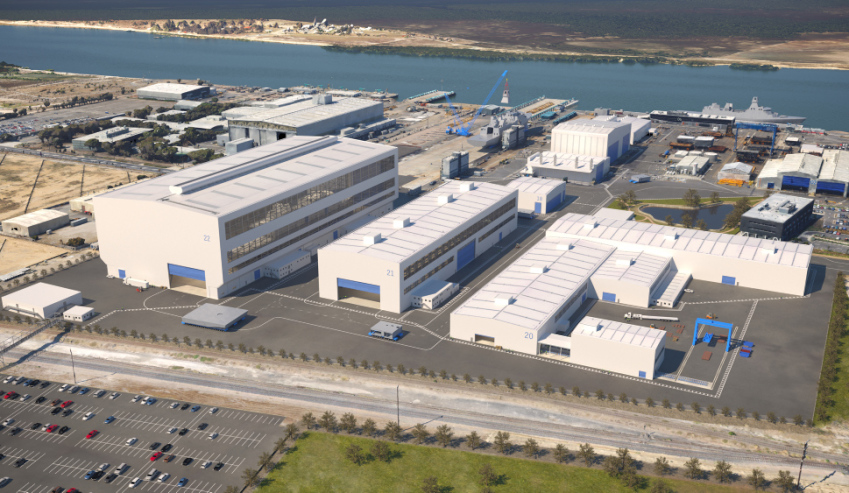The Naval Shipbuilding College was opened last year in order to ensure a suitably skilled and qualified Australian workforce is available at the right time to meet industry’s needs in delivering the National Naval Shipbuilding Enterprise.
The college was established in April 2018 by the Australian government to identify and support the development of a skilled national workforce that would be required to deliver the $90 billion Naval Shipbuilding Enterprise.
A workforce register has been established to support students, workers from adjacent industries or career changers to upskill through education and training providers. It also helps candidates seize the professional career opportunities available in naval shipbuilding by connecting them with future employers.
Based at the Osborne Naval Shipyards in South Australia, the college has a national focus on co-ordinating collaboration between industry, education and training sectors to develop endorsed programs that will deliver a skilled and capable shipbuilding workforce through existing higher education and vocational providers in Australia.
At the head of the ambitious program is newly appointed chief executive of Naval Shipbuilding Institute (NSI) Ian Irving, and he discussed how NSI could work to enable the development of a highly skilled national workforce to help deliver the Australian government's Naval Shipbuilding Enterprise.
What is the government trying to achieve in establishing the NSI?
Irving: The government's embarked on a new thing. We've got continuous shipbuilding program both for surface ships and submarines, and that's really a very different view than we've had in the past with programs that have come and gone, and shipyards that have kind of started and finished, if you like, over the last 30 years in Australia.
To the government's credit, they've taken a long-term view of what Australia needs in terms of its maritime capabilities, and established a program of continuous shipbuilding, and that will require a flow of continuous personnel and skills into that sector. And the programs that the country's embarked on, the new submarine, the Attack Class submarine, and the Hunter Class frigate, is kind of a step beyond what we've done before. So, it's a very exciting time.
And we've been quite successful in building ships and submarines in this country, actually. But putting all that together, at the one time with the scale that's being expected, and the complexity is a new thing.
Can you explain your role, in regards to the college?
It's a really exciting piece because, for me, it's really the centre of this shipbuilding enterprise. We can't do anything without great people, and it's everything from the people that'll be working in the yards doing the construction, right through to PhDs doing research.
For me, it's establishing the framework that can ensure that that supply of resources and skills is available. We're also looking to promote the industry sector to the community. A lot of people don't really understand what shipbuilding is, and the kind of careers that are available.
So, it's everything from that industry promotion, right through to working with universities and TAFE colleges to put in and upskill their training offerings, to be at the standard that we need for these new digital shipyards that are being being built in Australia. For me, it's really the central core, if you like, of our whole shipbuilding enterprise.
Can Australia support this agenda? Can we succeed in these ambitious programs?
Yeah, I think we can, we've just successfully built a class of air warfare destroyers. They're fantastic assets, great ships. The ships that we're building now, and the submarines we're building now, are more complex, in terms of the design requirements. They're more specialised for Australia's requirements. So we do need to upskill ourselves in that regard.
I think the government's got $90 billion of investment here, and recognising the importance of our naval capabilities for the country's national security, and is confident that we can do that. And that's a great backing to the industry. It's a great backing to the Australian public, in terms of the fantastic careers that'll be available.
The full podcast interview with chief executive of the Naval Shipbuilding Institute Ian Irving is available here.


